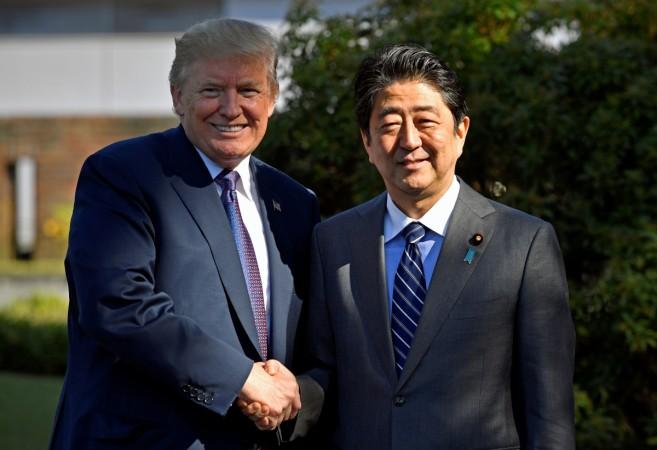
Japanese Prime Minister Shinzo Abe announced on Friday that he has decided to resign because of chronic ulcerative colitis, after weeks of speculation about his health following two visits to a hospital and just days after setting a record as the country's longest-serving leader.
In a news conference in Tokyo, Abe told reporters that he has been "struggling" with his health, which began to deteriorate in mid-July, and that he was ready to end his leadership of the world's third-largest economy — as soon as his Liberal Democratic Party chooses a successor.
But Abe's role in bringing about a period of relative stability in a nation previously known for frequent leadership changes will always be remarkable. The 65-year old has done that while renewing Japan's commitment to top-tier multilateral trade agreements, such as the CPTPP and the Japan-EU EPA, with the United States, at the same time, particularly to shape the evolution of the Indo-Pacific region through the Free and Open Indo-Pacific vision and countering China's hawkish territorial claims.
China's challenging of Japan's sovereignty over the Senkaku Islands in the East China Sea and the endangering of sea lines of communication in the South China Sea with the militarization of artificial islands in international waters, together with the rejection of the July 2016 Permanent Court of Arbitration's decision comprehensively rejecting all of China's sovereignty claims in the South China Sea, further bolsters the rationale for deepening the Japan-US alliance on both sides.
The US-based think tank Rand Corporation warns that China's steady escalation and increasingly provocative penetrations could "strain Japan's capacity to respond" while avoiding the risk of an armed conflict that could potentially draw in the United States.
Now, it is to be noted that the US-Japan strategic alliance has always been the cornerstone of American security interests in Asia and is fundamental to regional stability and prosperity in the Pacific.

US-Japan relations
The US established diplomatic relations with Japan in 1858. During World War II, diplomatic relations between the two nations was severed in the context of the war that followed Japan's 1941 attack on Pearl Harbor in Hawaii. After years of fighting in the Pacific region, Japan signed an instrument of surrender in 1945. Normal diplomatic relations were reestablished in 1952, when the Supreme Commander for the Allied Powers, which had overseen the postwar Allied occupation of Japan since 1945, disbanded. The Treaty of Mutual Cooperation and Security between Japan and the United States was signed in 1960.
Continuing the legacy in the recent connotation as well, Abe administrative priorities have further conveniently dovetailed with major goals of the US military strategy — including pre-Trump ones, like the Obama administration's "Pivot to Asia" — which hinge on reinforcing the American-Japanese alliance. The state secrets law, the move toward collective self-defence, the maintenance of American military bases in Okinawa — none of Abe's signature domestic policies undercut America's interests.
But what will be the future of US interests until the next elected Prime Minister of Japan proves to stack in Shinzo Abe's absence?
To be honest no foreign leader has closer ties with President Donald Trump than Prime Minister Shinzo Abe. Since the 2016 presidential election, the two leaders have met 20 times, played 5 rounds of golf, and had 32 phone calls, at times speaking twice a week.
Despite Trump's laments regarding Japan's unfair trade practices since the beginning, Abe's initiative to foster friendship with the American President has had important symbolic implications, especially in the eyes of third parties. Navigating this transition smoothly also signaled to potential adversaries such as China and North Korea.
What Abe's investment has done, however, is to secure a line of communication to shape Trump's perceptions, enhancing his understanding that a strong relationship with Japan is, in fact, in US interests. Had Abe not invested as much in his personal relationship with Trump as he has over the last three years, and a resultant weakened US-Japan alliance would have potentially countered anti-forces in the region and maintained its stability?









